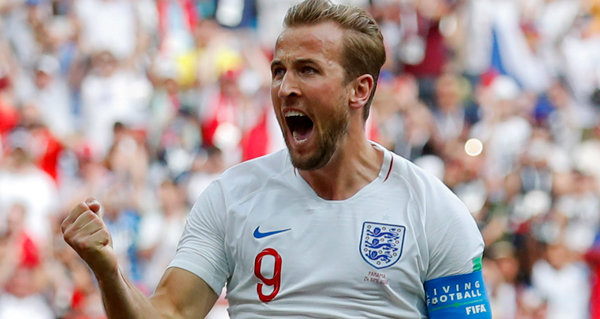It’s a rare occurrence, when sporting events are impacted by the stories we tell about them. This isn’t to dismiss the power of narrative altogether, but rather to say that, for instance, LeBron James coming back to Cleveland to deliver the Cavs a championship doesn’t have anything to do, really, with him sprinting the length of the court to block Andre Iguodala’s layup in the NBA Finals. By which I mean LeBron wasn’t thinking about all that weighty stuff at the time. He saw a man in the wrong-colored jersey running away from him and chased him down.
The same is true of pretty much every incredible athletic feat. Sergio Ramos’s 94th-minute Champions League header. Malcolm Butler picking off Russell Wilson in the Super Bowl. Players undoubtedly feel the moment they’re living through, but more than that, they’re focused on who they’re supposed to mark, a shot they’re trying to get in front of, a ball that’s flying toward them. They’re devoting little mental space, if any, to the consequences of what they’re doing because doing it as well as they can is so taxing by itself.
Which is why it’s remarkable how sharply aware England seemed, as it was happening, that they were badly wasting their shot at a World Cup final on Wednesday. They firmly outplayed Croatia for the entirety of the first half. Kieran Trippier scored an excellent free kick to put England ahead inside of five minutes and from there they took off, turning unimaginative Croatian long balls and diagonal passes into swift, fluid breaks that concluded in good saves or slightly lacking finishes. They probably should have concluded the opening 45 minutes up by two or three goals, but they were controlling the game and looked ready to put it to bed at any moment.
To start the second half, England were less awesome but still solid. They gave Croatia perhaps too much space on the flanks, but John Stones and Harry Maguire dealt with the barrage of crosses well and a compact defense weren’t letting Luka Modrić or Ivan Rakitić find any space through the middle. Then, in the sixty-eighth minute, Sïme Vrsaljko hit an exceptionally good cross, Ivan Perišić finished it beautifully with the outside of his foot, and England, like forgetful werewolves glimpsing themselves in the bathroom mirror, remembered that they are England, and they screw this sort of thing up all the time. At 1-1, still on the whole having put in a superior performance, only needing to, y’know, find Harry Kane with a decent through ball, they panicked. Their next ten minutes were their most discombobulated all tournament: wayward passes, confused defending, an inability to get the ball away from their own penalty area. Croatia nearly took the lead in that span. Perišić hit the outside of the post after a bouncing ball spooked the hell out of the entire back line.
Though England settled down slightly after that, Croatia more or less dominated them the rest of the way, through full time and into the extra period, where Mario Mandžukić waltzed through a thicket of exhausted England players and banged in the match-winner. And that was the Three Lions out of the World Cup again, prouder than usual, but knowing they could have done better.
Let’s not give ourselves over to brainless meme-repeating. England didn’t lose because they’re England. Croatia improved after the halftime break, Gareth Southgate didn’t make any adjustments to get some bodies out on their crossers, and England were a touch unlucky not to finish off more than one of their chances when they were playing wonderfully. But there was definitely a spell, after Perišić’s goal, when England downshifted from just playing the game—and playing really well—to being overwhelmed by the game’s meaning, being tugged off-balance by the gravity of chronic English failure on the international stage. It’s not like they suddenly forgot what to do, but they were dazed, and then unnerved, and then struggling, and then—oh no! Mandžukić had scored.
I watched the game on ITV, where the announcers were unabashedly pro-England. It was fascinating to watch their delight turn to arrogance and their arrogance dissolve into deep concern. By the end of the match, they were complaining about phantom fouls and time-wasting, as every aggrieved fan does as the clock ticks down toward your demise. Usually—especially during soccer matches, where there’s a decent amount of dead air to fill—what commentators are talking about on TV doesn’t match what the athletes are focused on. They’re talking stakes and baggage and history and the action on the pitch isn’t about that. It’s much more specific: there’s a guy in the wrong-colored jersey running away from you, and you’ve got to chase him down.
That wasn’t the case on Wednesday. Clive Tyldesley occasionally seemed to be narrating Dele Alli’s increasingly frazzled interior monologue. For once, for a while, those watching and those playing were both sensing that England were blowing it. Unfortunately for the players, that only made escaping their predicament more difficult. When athletes are hearing stories in their heads before the game is over, that’s when things begin to fall apart.



